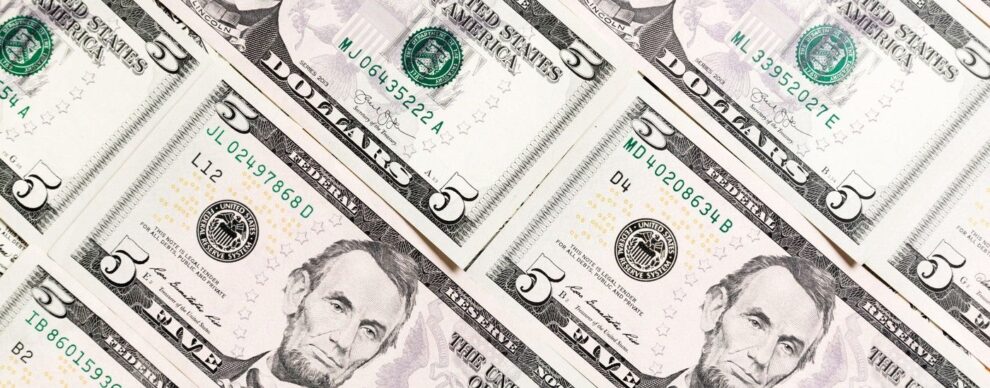
Bloomberg
IBM’s Patent Income Slips as Companies Resist ‘Godfather’ Deals
(Bloomberg) — International Business Machines Corp. has reigned for nearly three decades as the top recipient of patents in the U.S. But in the past five years, the annual income the technology giant generates from those rights has slipped and the overall number of patents it produced has plateaued.Unfavorable Supreme Court precedents and an emboldened tech industry are threatening what had been a reliable cash machine. Intellectual property rights historically brought in more than $1 billion a year, on average, helping offset massive research and development costs and shrinking revenue. Last year, IBM’s income from intellectual property was $626 million, its lowest point since 1996, and 2019 wasn’t much higher. While it continues to secure license deals, they are fewer and harder-won, with companies like Airbnb Inc. and Chewy Inc. waging battles in court. In 2020, IBM topped the list of patent recipients for the 28th consecutive year with 9,130 patents, while Samsung Electronics Co. was second with 6,415. IBM received the most patents in three of the 10 fastest growing fields in technology — quantum computers, machine learning and computer systems using neural networks that imitate how the human brain works, according to a recent study by Fairview Research’s IFI Claims Patent Services.IBM, once one of the world’s best-known computer companies, is reinventing its 109-year-old self, shedding its legacy infrastructure unit to focus on more modern industries in the cloud and artificial intelligence. Yet even as IBM is leading in patents in areas it thinks will keep the company competitive in the future, its most commonly asserted patents actually come from the early days of the internet.In February, online pet-food seller Chewy requested a court order to block a $36 million patent fee IBM is demanding. Chewy accused IBM of “seeking exorbitant licensing fees for early internet patents having no value.” IBM’s claims against Chewy include years-old inventions such as targeted advertising and content resizing based on cursor activity, both ubiquitous on the web.Chewy said IBM doesn’t make or sell products covered by the vast majority of the thousands of patents it has received over the past 20 years, but instead just threatens to sue if companies don’t agree to pay for licenses. IBM has not answered Chewy’s complaint, and no trial date has been set.Companies that use their IP licensing aggressively as a way to make money are often referred to as patent trolls. However, IBM’s position as the largest aggregator of U.S. intellectual property is more akin to being a patent godfather, says Robin Feldman, a law professor at the University of California, Hastings.With more than 38,000 active patents in its portfolio, and thousands of license agreements bolstering its legitimacy, IBM’s demands have traditionally gone unchallenged, Feldman said. Such patent godfathers, with large portfolios, are “able to make offers that can’t be refused.”Even some of the most innovative technology giants have licensed IBM patents over the years. Alphabet Inc.’s Google, Amazon.com Inc. and LinkedIn are among countless companies that have had to pony up. IBM also has long served as a patent bank for young companies to jump-start their portfolios. Facebook Inc. was not yet public in 2012 when it bought 750 patents on software and networking from IBM. As Instacart Inc. prepares to go public, it purchased almost 300 IBM patents in January ranging from e-commerce to smart shopping bags.Traditionally, IBM’s negotiations over patent licenses have included the threat of a lawsuit if the companies don’t pay, according to patent lawyers, but rarely have they gone that far. Lately, more disputes have escalated. Last year, IBM sued Airbnb related to patented technology dating back to the 1990s, and the home-share giant, which had just gone through a very high-profile public stock market listing, settled for an undisclosed amount. In 2019, a Federal appeals court ruled that Booking Holdings Inc.’s websites, including Kayak, OpenTable and Priceline, didn’t infringe an IBM patent related to targeting advertising.IBM’s first patent case to go to trial was in 2018 against Groupon Inc., after the company refused to pay the licensing fees. Groupon’s attorney, David Hadden, characterized IBM’s strategy as an industrywide shakedown that targets high-revenue companies in hopes of a bigger payout. Four early-internet patents were the basis of the lawsuit. After two years of litigation, a jury initially awarded IBM $83 million, more than double what Google, LinkedIn, or Twitter paid for a similar license. Groupon later settled for $57 million.IBM takes patent infringement seriously. The company spends nearly $6 billion a year on research and development and relies on its patents to subsidize that investment, historically recouping 10% to 30%. But some say IBM is leaving money on the table.According to Joe Chernesky, a longtime intellectual property professional whose experience includes stints at Intellectual Ventures and Intel Corp., IBM’s patent portfolio could be worth a consistent $1 billion to $2 billion a year, if it were aggressively asserted through even more litigation. For example, Chernesky pointed to Ericsson, a Swedish networking and telecommunications company, that generated $1.2 billion from intellectual property rights in 2020 and Nokia Oyj of Finland that brought in $1.7 billion. Even as IBM has sued an increasing number of companies, its IP income has shrunk. Last year, income from intellectual property licensing was nearly a third of its 2000 peak of $1.7 billion, or a recent 2016 spike of $1.6 billion. Feldman, the law professor, attributes the decline to a series of Supreme Court verdicts, which made it easier to invalidate a patent, resulting in lower settlement amounts. “Being the godfather isn’t what it used to be,” Feldman said. “It’s not that patent aggregation as a business is over. You just make less money.”The shift comes at an inopportune time for Armonk, New York-based IBM. Its core business is struggling, posting declining sales in nine of the past 10 quarters. During an investor call in January, Chief Executive Officer Arvind Krishna said that he was confident the company’s focus on hybrid cloud and artificial intelligence can help spur revenue growth in 2021.Part of IBM’s success will stem from shedding its legacy infrastructure unit, a change engineered by Krishna that’s underway now. That unit handles everyday service operations, like managing client data centers and traditional information-technology support for installing, repairing and operating equipment.It’s unclear how much intellectual property or research capacity the spun-off company will take with it. IBM said in a statement that “the independent company is expected to hold intellectual property relevant to its business of managing infrastructure services.” The unit accounts for about a quarter of IBM’s sales and staff. If IBM’s lead in patents were to slip, the company could blame the spin-off for the slowdown, said Tamlin Bason, an analyst at Bloomberg Intelligence. IBM counts on its prowess in patents as a promotional tool, helping to recruit engineers and designers and could face a major public relations blow if it ever loses the top spot, Bason said. IBM still has plenty of ideas. Like most big corporations, Big Blue rewards its employees for submitting an idea that can be patented. Ideas related to its core businesses are the priority, but IBM seeks patents on other things too, said Maulin Shah, a patent lawyer who did work on IBM patents at a former law firm.“They’ll file a patent on anything, even if it’s not a business line they’re in,” Shah said.Recent IBM patents include coffee delivery drones and a gas gauge that tricks you into refueling early if you’re feeling stressed. “At some point in the future, they’ll be able to license the IP,” Shah said.But even IBM may be recognizing its glory days as the don of patents are waning. The company is exploring alternate ways of capitalizing on its intellectual property, IBM President Jim Whitehurst said in a recent interview with Bloomberg at the Montgomery Summit. “The patent license model isn’t the future of how you monetize innovation,” he said. (Updates to add comparison with Nokia in 13th paragraph. A previous version of this story corrected Ericsson’s patent income.)For more articles like this, please visit us at bloomberg.comSubscribe now to stay ahead with the most trusted business news source.©2021 Bloomberg L.P.









